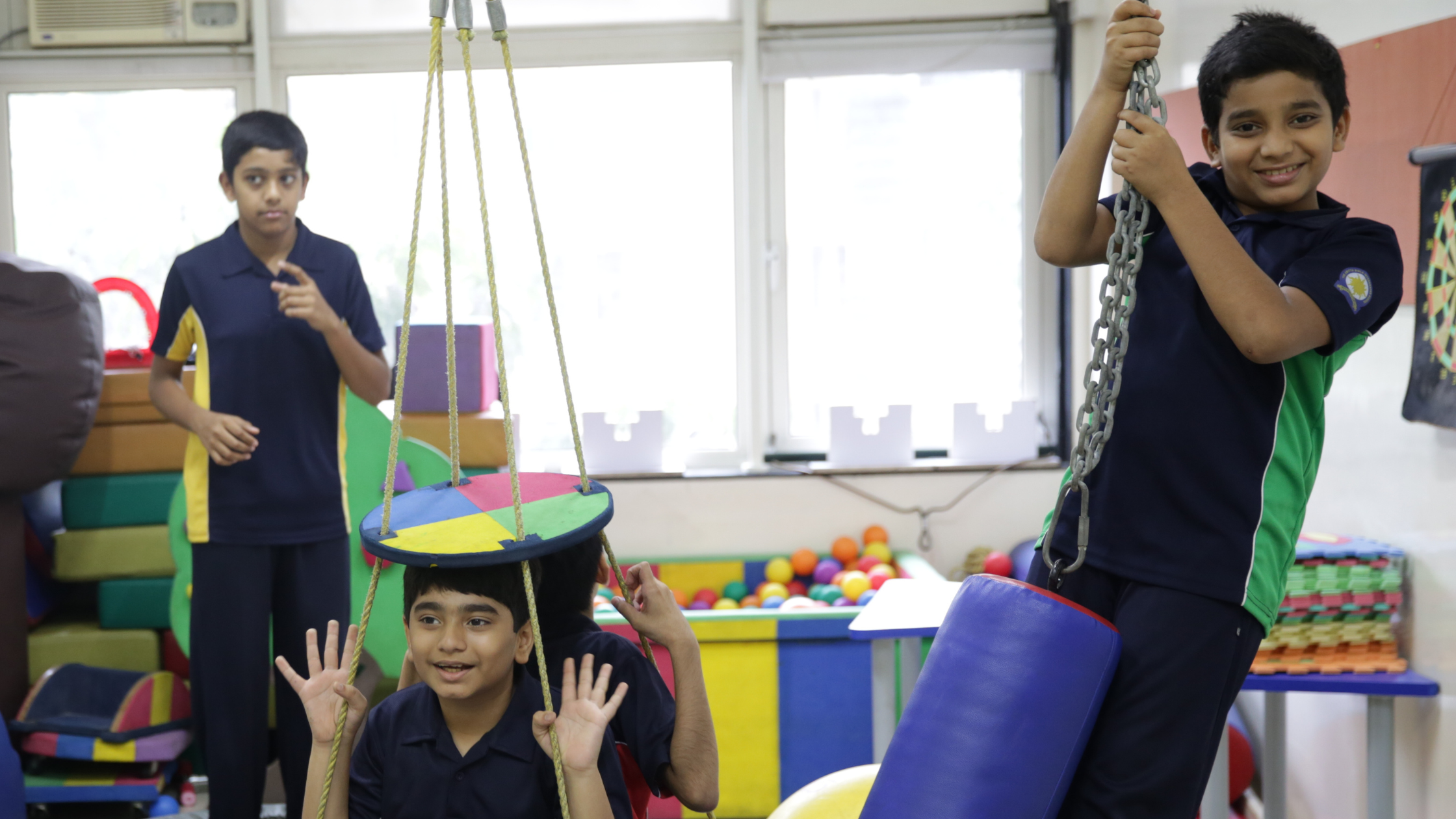

If a child can’t learn the way we teach, maybe we should teach the way they learn!
– Ignacio Estrada
It's a multifaceted approach, acclimatizing remedial intervention plans to a child’s specific requirements. It makes use of one- on- one instruction, small group instruction, written work, verbal work and computer- grounded work. Remedial remedy focuses on chops rather than on content.
A remedial therapist, on the other hand, works with a child who has average or advanced intellectual capability but faces difficulty in specific academic areas. Remedial programs are designed to meet the specific concern areas and to make sure the child is suitable to perform well in academy.
A remedial therapist/ special preceptor is different from an instructor. An instructor like educators from the School for Special child in Mumbai i.e. ABIS works on academics, whereas a remedial therapist/ special preceptor works on specific chops in which a child shows enterprises. For illustration, if a child is diagnosed with Dyscalculia or shows difficulty in mathematics, also an instructor will make him/her practice multiple times, but a remedial therapist/ special preceptor will work on specific strategies to help the child understand figures and data and educate easier styles.
* Reading (reading and understanding information)
* Writing (spellings, handwriting, jotting expression)
* Math (introductory and advance)
* Information Processing (perception and memory)
* Study
* Social
* Functional Academics
All children need love, stimulant, and support, and for kiddies with learning disabilities , similar positive underpinning can help ensure that they crop with a strong sense of tone- worth, confidence, and the determination to keep going indeed when effects are tough.
In searching for ways to help children with learning disabilities , flash back that you're looking for ways to help them help themselves. Your job as a parent isn't to “cure” the literacy disability, but to give your child the social and emotional tools they need to work through challenges. In the long run, facing and prostrating a challenge similar as a literacy disability can help your child grow stronger and further flexible.
Do not sit back and let someone differently be responsible for furnishing your child with the tools they need to learn. You can and should take an active part in your child's education.
Everyone — learning disability or not has their own unique literacy style. Some people learn stylish by seeing or reading, others by harkening, and still others by doing. You can help a child with a literacy disability by relating their primary literacy style.
Is your child a visual learner, an audible learner, or a kinesthetic learner?
Visual learners:
* Learn stylish by seeing or reading.
* Do well when material is presented and tested visually, rather than verbally.
* Benefit from written notes, directions, plates, maps, charts.
* May love to draw, read, and write are frequently good at spelling.
Audible learners
* Learn stylish by harkening.
* Do well in lecture- grounded literacy surroundings and on oral reports and tests.
* Benefit from classroom conversations, spoken directions, study groups.
* May love music, languages, and being on stage.
Kinesthetic learners:
* Learn stylish by doing and moving.
* Do well when they can move, touch, explore, and produce in order to learn.
* Benefit from hands- on conditioning, lab classes, props, derisions, and field passages.
* May love sports, drama, martial trades, and trades and crafts.
Success means different effects to different people, but your expedients and dreams for your child presumably extend beyond good report cards. The point is that success in life — rather than just academy success — depends, not on academics, but on effects like a healthy sense of tone, the amenability to ask for and accept help, the determination to keep trying in malignancy of challenges, the capability to form healthy connections with others, and other rates that are not as easy to quantify as grades and test scores.
Last but not the least
Some parents keep their child's literacy disability a secret, which can, indeed with the stylish intentions, look like shame or guilt. Without knowing, extended family and musketeers may not understand the disability or suppose that your child is stopping from shiftlessness or hyperactivity. Once they're apprehensive of what is going on, they can support your child's progress.
Within the family, siblings may feel that their family or family with a literacy disability is getting further attention, lower discipline and preferential treatment. Indeed, if your other children understand that the literacy disability creates special challenges, they can fluently feel jealous or neglected. Parents can help check these passions by cheering all of their children that they're loved, furnishing schoolwork help, and by including family members in any special routines for the child with a literacy disability.
-- Ms. Smita Shinde
Junior School Faculty
The Aditya Birla Integrated School